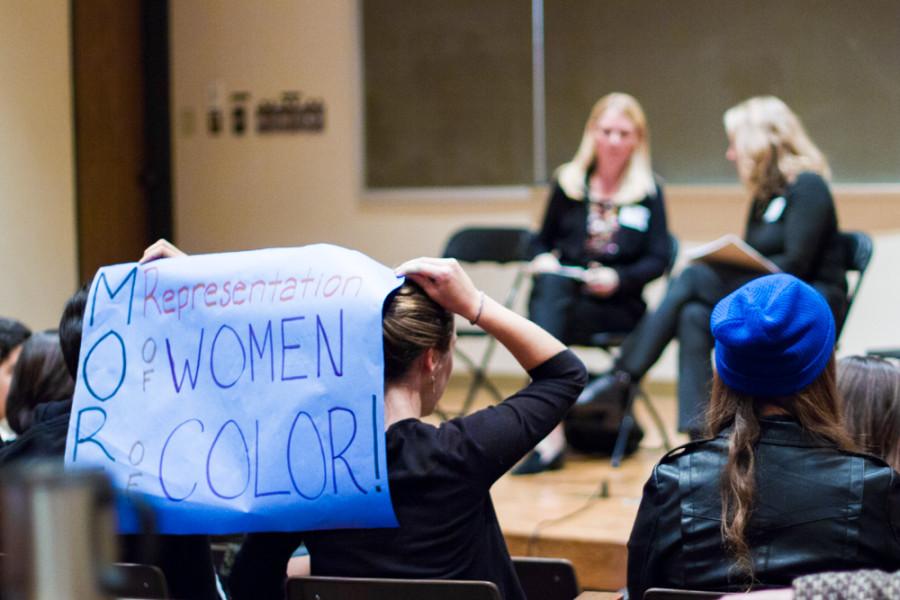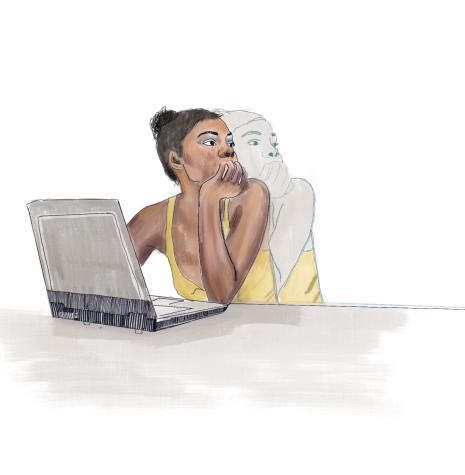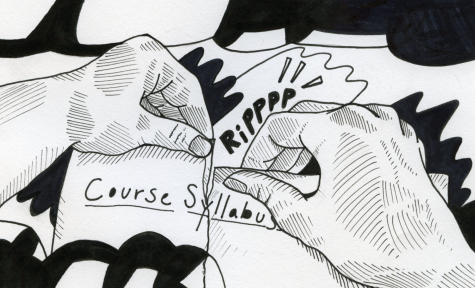SEC, Women in Leadership Panelists Respond to Protest
October 26, 2015
Three Whitman graduates, Ann Watson ‘84, Maria Denny ‘84 and Sarah Geren ‘84, were selected by Colleen Willoughby ‘55 to present in the 2015 edition of the annual Women in Leadership Symposium on what helped them get to where they are in their careers today.
This Symposium is put together by both Willoughby, who has been hosting this event for over 30 years, and the Student Engagement Center. Willoughby selects each of the panelist and chooses the date that they will be presenting, then the SEC take on the role of organizing the event at the school.
“The Student Engagement Center’s name is on this so we have some responsibility for how the event goes, but we don’t have any ability to influence who is on the panel because Colleen knows each person who she want to bring.” said Associate Dean for Student Engagement Noah Leavitt. “But ultimately Colleen makes the decisions based on the stories she want to have shared each year.”
This year, the panelist were all chosen out of a pool of women who had graduated from Whitman College in order to recognize this year’s and first woman president, Kathleen Murray. They were also given several questions by Willoughby to answer and present to the students and public during the Oct. 22 event.
However, students at the school were displeased with this year’s panel choices because of the lack of the diversity. The students were represented by five core leaders: Angela Tang, Jackie Bonilla, Anne Want, Gladys Gitau, and Shireen Nori, who all gave speeches on the panels lack of diversity in order to produce a change in next year’s symposium.

“I think [the protest] raised a very significant issue that hasn’t been raised before and I think it went directly to the person who is the decision maker about what this event is every year and I don’t have any reason to believe that it won’t be a very different session next year,” said Leavitt.
Willoughby and the panelists also agreed that the students did a very good job organizing their protest for more diversity. Although, Watson thought that there were ways to be more effective, specifically in regards to engaging in a dialogue with panelists during a dinner prior to the event.
“I do think that there are more ways to be more effective. I don’t think that [students] not showing up at the dinner was helpful. I think that if we all sat around at the dinner and talked that they would have gained [perspective] from us and we would have gained [perspective] from them too.” said Watson. “I think that what Whitman can do is help students to learn how to advocate effectively … I do think that learning how to be democratic is an important skill to learn which is going to make our democracy thrive.”
Since the SEC plays a role in hosting the Women in Leadership Symposium, and also received letters from students that indicated their disapproval of the events lack of diversity, they want to remedy the situation. The way they plan to do this is to speak with students about the ways they can improve future programs associated with diversity, both in general and specific to this event.

“We are going to have a discussion with all of the students . . . who sent us letters before the event expressing their views about the panel,” said Leavitt. “We appreciated the time and the energy that was put into sharing some concerns about the event with us and we want to honor those and hear other things in addition to the composition of the panel that we [the SEC] can do, maybe unrelated to Women in Leadership.”
The SEC and Willoughby both have intentions of changing events in order to include more diversity in future years. However, the students are still waiting to see the action in future panels and symposiums. One of the students, Shireen Nori, spoke out during the symposium and is hoping to see this change because of the impact it has on students that rely on role models of similar backgrounds.
“When you have a campus that is made up of such a small minority of staff of color, of faculty of color, and students of color, for us the role models that we really need and really look up to come from our experience, come from our backgrounds and have had similar struggle that we’ve had,” said Nori.










